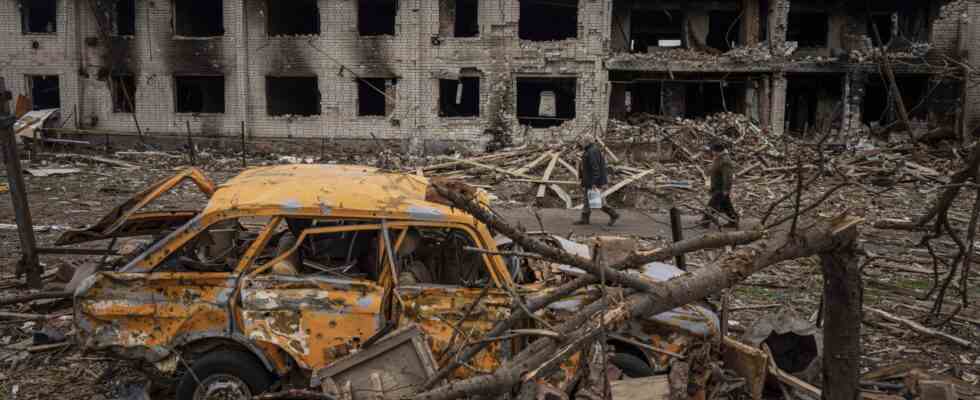Status: 11/30/2022 4:45 p.m
After the start of the Ukraine war, the EU states froze Russian assets worth billions. The EU Commission is now proposing how the money should benefit Ukraine – but it falls short of Kiev’s demands.
The EU Commission wants to use frozen assets of the Russian central bank to force Russia to pay compensation after a possible end to the war against Ukraine. The funds will not be released until Russia signs a peace deal that includes reparations, officials said.
So far, around 300 billion euros in central bank reserves have been blocked as part of the sanctions. Moscow reacted to the plans and announced retaliation if property belonging to the Russian state or Russian citizens was confiscated in the EU.
Circumvention of sanctions as an EU crime
In the short term, a structure could be put in place to manage and invest funds blocked by sanctions, said Commission President Ursula von der Leyen. The proceeds from this could be used by Ukraine for reconstruction.
The proposals are now to be coordinated with the EU states and international partners. “The damage to Ukraine is estimated at 600 billion euros,” said von der Leyen. “Russia and its oligarchs must compensate Ukraine for the damage and bear the cost of rebuilding the country.”
The proposals thus fall short of the wishes from Ukraine. In the past, representatives of the country had repeatedly called for the assets of the Russian state, the foreign assets of Russian state-owned companies and the property of Russian oligarchs to be confiscated and made available to Ukraine for the country’s reconstruction.
preserve state immunity
In addition to legal difficulties, political risks are also seen in Europe. It is feared that countries like Russia and China could set up an alternative international financial system in response to expropriations.
With the current proposals, the EU Commission wants to protect both the right to property and state immunity. The latter is a principle of international law and protects states, among other things, from the foreclosure of their deposits and assets.
Russia will react with “adequate countermeasures” if the assets of the Russian state or Russian citizens and companies are confiscated in the EU. That said the spokeswoman for the Russian Foreign Ministry, Maria Zakharova, according to the TASS agency.
Oligarchs in focus
According to information from the EU Commission, there has also been progress on the legal basis for the expropriation of Russian oligarchs. Circumvention of sanctions – for example when assets are transferred to third parties – was recently added to the list of EU crimes. In the next step, this should enable the Commission to propose minimum penalties. For example, yachts, helicopters, real estate and works of art belonging to people who violate EU sanctions can be confiscated more easily in the future.
It was initially unclear to what extent the frozen assets of Russian oligarchs worth almost 19 billion euros could be affected. The regulation should not apply retrospectively.

